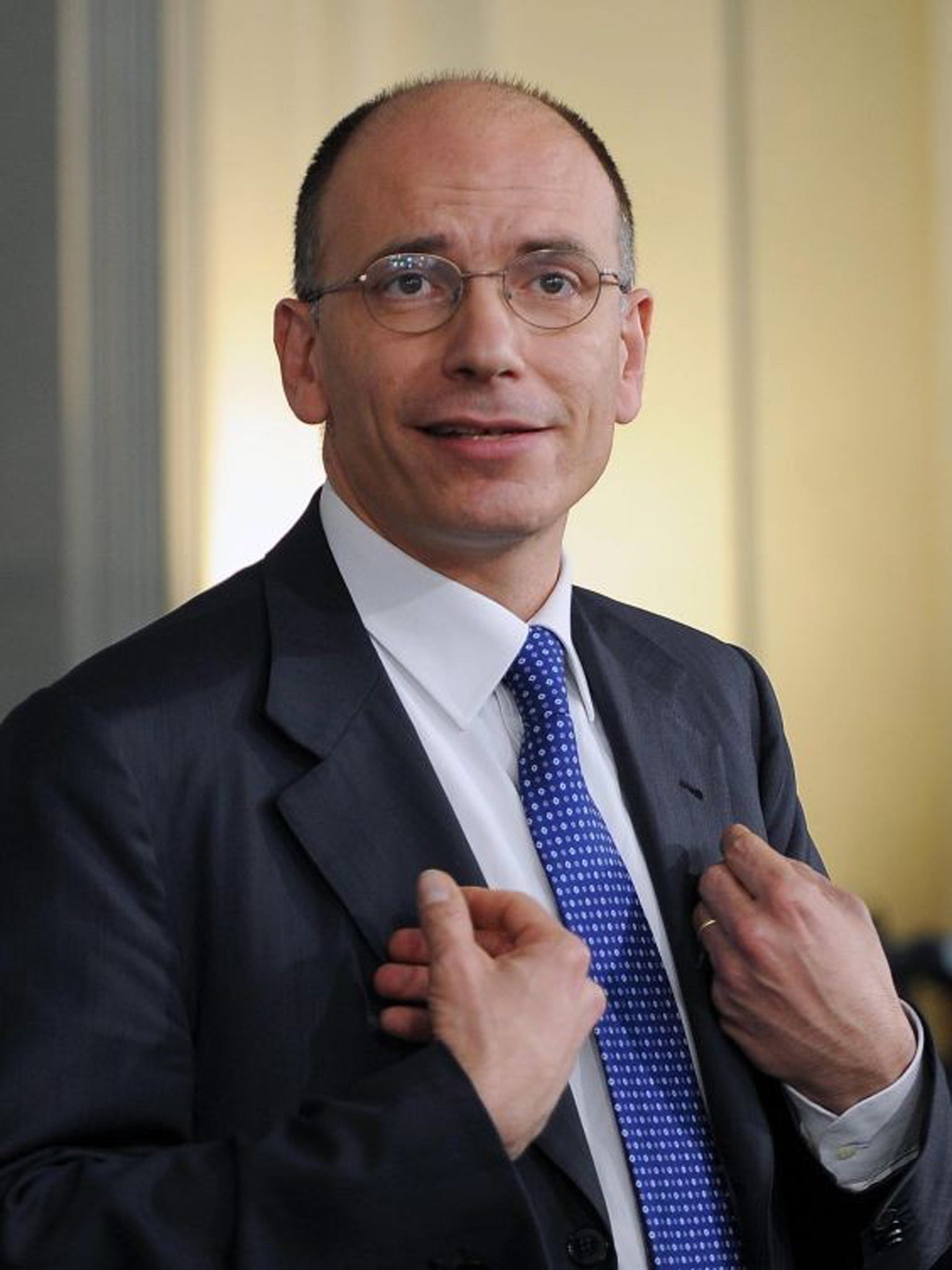New Italian Prime Minister Enrico Letta to seek backing of parliament, as vote of confidence in the coalition takes place in the shadow of Rome gun attacks
Vote comes the day after an unemployed man shot two police officers and a passer-by outside the Prime Minister's office

Italy’s new Prime Minister Enrico Letta will seek the backing of parliament today, as the country’s coalition government looks towards addressing its severe political and economic problems.
Letta will speak in parliament ahead of the 3pm confidence vote in which he can expect the backing of his own centre-left Democratic Party and former Prime Minister Silvio Berlusconi's centre-right People of Freedom party.
The Democratic Party and People of Freedom party were forced into a coalition after the centre-left fell short of the numbers in parliament to govern alone in elections in February.
The vote of confidence takes place under the shadow of a gun attack in Rome yesterday in which an unemployed man shot two police officers and a passer-by outside the Prime Minister's office.
Letta himself was being sworn-in at the nearby presidential palace at the time of the attack.
Officials said the shooting was an isolated incident but it came amid tensions that have built up in the euro zone's third largest economy after almost two years of acute economic and social crisis.
Lower house speaker Laura Boldrini said: “This is another sign of despair… Politicians have to come back to providing concrete answers to people's needs.”
There is some doubt over whether Italy’s new coalition government will last its full five-year term.
Letta has pledged to try to restore confidence in the country's battered political institutions and has promised to address the poverty worsened by a jobless level running at more than 40 per cent among young people in some areas of the country.
He also hopes to push the European Union away from its fixation with budget austerity.
Despite speculation over how long the centre-left and centre-right coalition will last, Letta is expected to try to pass at least a few basic reforms quickly including a change to Italy's much criticised electoral laws and a cut in the size of parliament.
Letta’s cabinet, which includes a record seven women and Italy's first black minister, was shaped in part as a response to disillusion with political elites shown in the success of the anti-establishment 5-Star Movement led by comic Beppe Grillo.
Letta will need all his diplomatic skill to keep the government on track and tensions in his forced coalition with the centre-right under control given the deep suspicion that exists between the rival blocs.
Silvio Berlusconi, caught up in a legal battle over a tax fraud conviction and charges of paying for sex with a minor, is not in the cabinet but he will have a powerful behind-the-scenes influence and could bring the government down if he chose.
Buoyant financial markets responded positively last week to signs of an end to the long stalemate that followed February's inconclusive national elections but many have sounded a note of caution as well.
“There is a very positive sensation because we come from a period of strong uncertainty and finally there is a very defined framework,” said Lorenzo Stanca, managing partner of Mandarin Capital, a private equity fund that invests in small Italian and Chinese firms.
“The real tests will come in the next few weeks and months,” he said. “There is not much experience in Italy of a coalition government and it will be difficult.”
Many in Letta's Democratic Party are finding the idea of a coalition with Berlusconi, their foe of two decades, abhorrent and the centre-right, boosted by a solid lead in the opinion polls, has made little effort to strike a conciliatory note.
Even before Letta's government was sworn in, the party was demanding the abolition of the IMU housing tax and the repayment of last year's levy, an election pledge by Berlusconi that will blow an 8 billion euro hole in this year's budget plans.
Italian business will be hoping for a reduction in the crushing burden of tax and red tape but badly strained public finances - notably a public debt likely to top 130 per cent of gross domestic product - leave Letta little room for manoeuvre.
Subscribe to Independent Premium to bookmark this article
Want to bookmark your favourite articles and stories to read or reference later? Start your Independent Premium subscription today.

Join our commenting forum
Join thought-provoking conversations, follow other Independent readers and see their replies